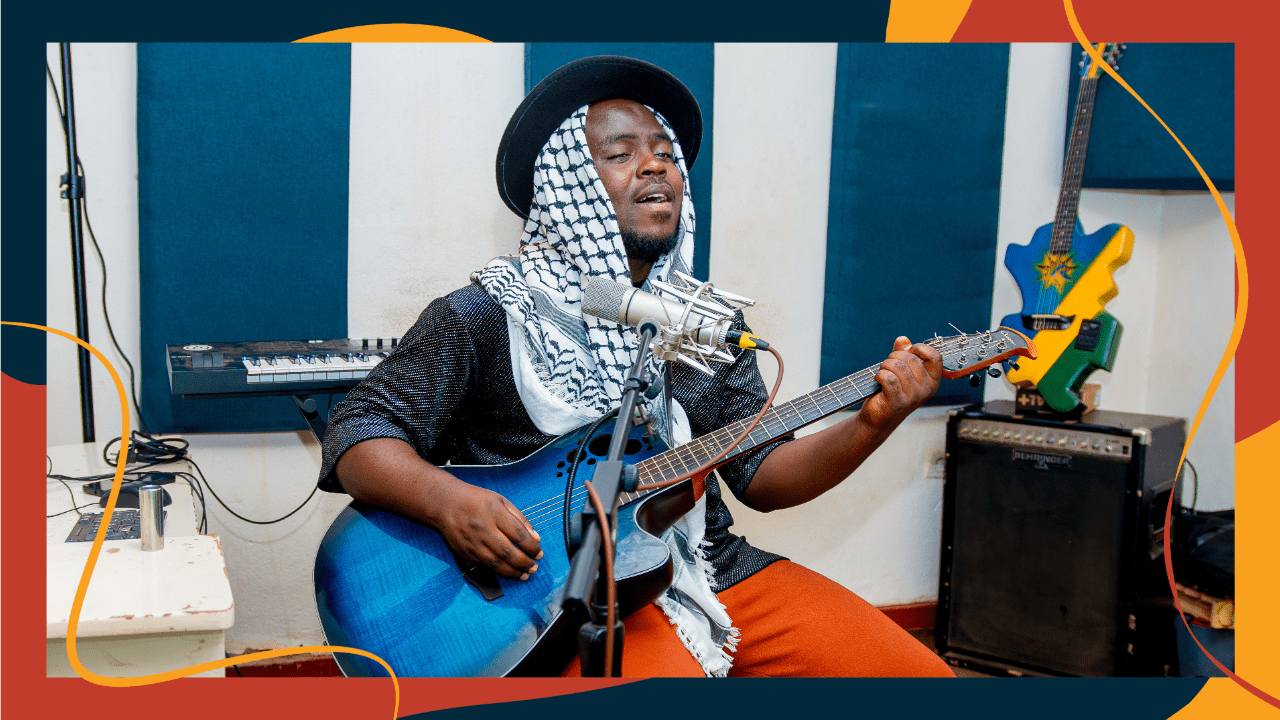Rukundo Bolingo Paccier is a Rwandan artist known for performing Fusion, a genre that blends traditional Rwandan music with modern styles. He is a skilled singer, songwriter, and instrumentalist. Born in Mahoko, Rubavu District, he performs under the name Bolingo Paccy.
Coming from a musical family, Bolingo was introduced to music at an early age and quickly learned how to play instruments. In 2017, he joined the Nyundo School of Music, where he discovered and refined his creative abilities. By 2018, he had started composing and sharing his own songs with Rwandan audiences, and in 2021 he officially entered the professional music scene.
He co-founded a music production studio called UB Record and also formed a group known as Umuriri Band. Bolingo draws most of his musical inspiration from personal life experiences. He says that during tough times or even when falling in love, he writes music, and that’s how his artistry evolves.
Alongside Umuriri Band, he began producing a variety of tracks. While some well-known artists began collaborating with him, he continued to focus on his own work. In October 2022, he released his first album titled Umucanshuro Album, which featured ten songs and was purchased by over 100 people shortly after its launch.
By the end of 2025, he plans to release his second album titled Inyenyeri Album, which will consist of fifteen tracks. This album includes collaborations with several Rwandan artists such as Okamma on Bushya, Man Martin on Ihogoza, Jule Sentore on Umwari, Aline Gahongayire on Andi Iruhande, and King James on Sinicuza, among others.
Bolingo has also worked behind the scenes on a number of songs including Imbabazi by Jado Sinza, Ndagushaka by King James, and Imbonezamakuza by Massamba. His guitar contributions are easily recognizable in many tracks, such as Nasara by Danny Nanone and Ok by LiJohn and Marina, where his musical skill stands out clearly.
He says what encourages him most about the Rwandan music scene is seeing his peers embrace their national identity through music. He explains that his Fusion genre is modern yet deeply rooted in tradition. For him, it reflects the Rwanda that shaped them—a culture they are unwilling to leave behind, even as they embrace innovation.
He emphasizes that young people should focus on creating their own original work instead of imitating others. According to him, it is not necessary to copy someone else’s style; people can build their own paths and use their talents to support themselves.


